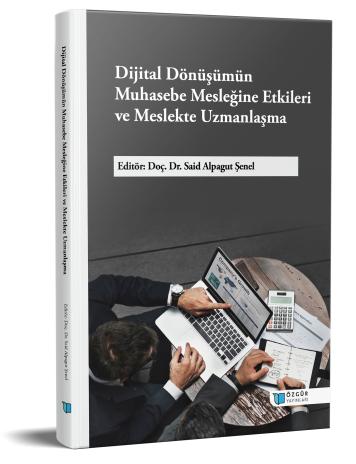
An Innovative Approach to Accounting Theories: Momentum Accounting
Chapter from the book:
Şenel,
S.
A.
(ed.)
2025.
The Effects of Digital Transformation on the Accounting Profession and Specia-lization in the Profession.
Synopsis
This study examines "Momentum Accounting," which is recognized as a novel technique within accounting theories. Traditional accounting systems, particularly the double-entry method, serve as a fundamental approach for recording and reporting the financial data of enterprises. This system evaluates financial events solely from a retrospective standpoint. Momentum accounting utilizes the three-sided recording methodology established by Yuji Ijiri and seeks to enhance decision-making in organizations by examining the dynamic nature of financial transactions. The objective of the study is to elucidate the theoretical foundation and practical implementations of momentum accounting, as well as to examine the distinctions between it and conventional accounting methodologies. This topic examines the evolution of accounting recording methods and includes illustrative uses of momentum accounting. The study illustrates the benefits of momentum accounting for financial performance analysis by examining XYZ Furniture Company and developing management scenarios predicated on rental revenues. The study's findings indicate that momentum accounting provides substantial benefits in both financial reporting and strategic management. Specifically, it enables firms to forecast future performance, assess financial momentum, and ground their decision-making processes on more robust foundations. Momentum accounting is anticipated to gain broader acceptance and integration into accounting standards due to advancements in technology and financial systems.

